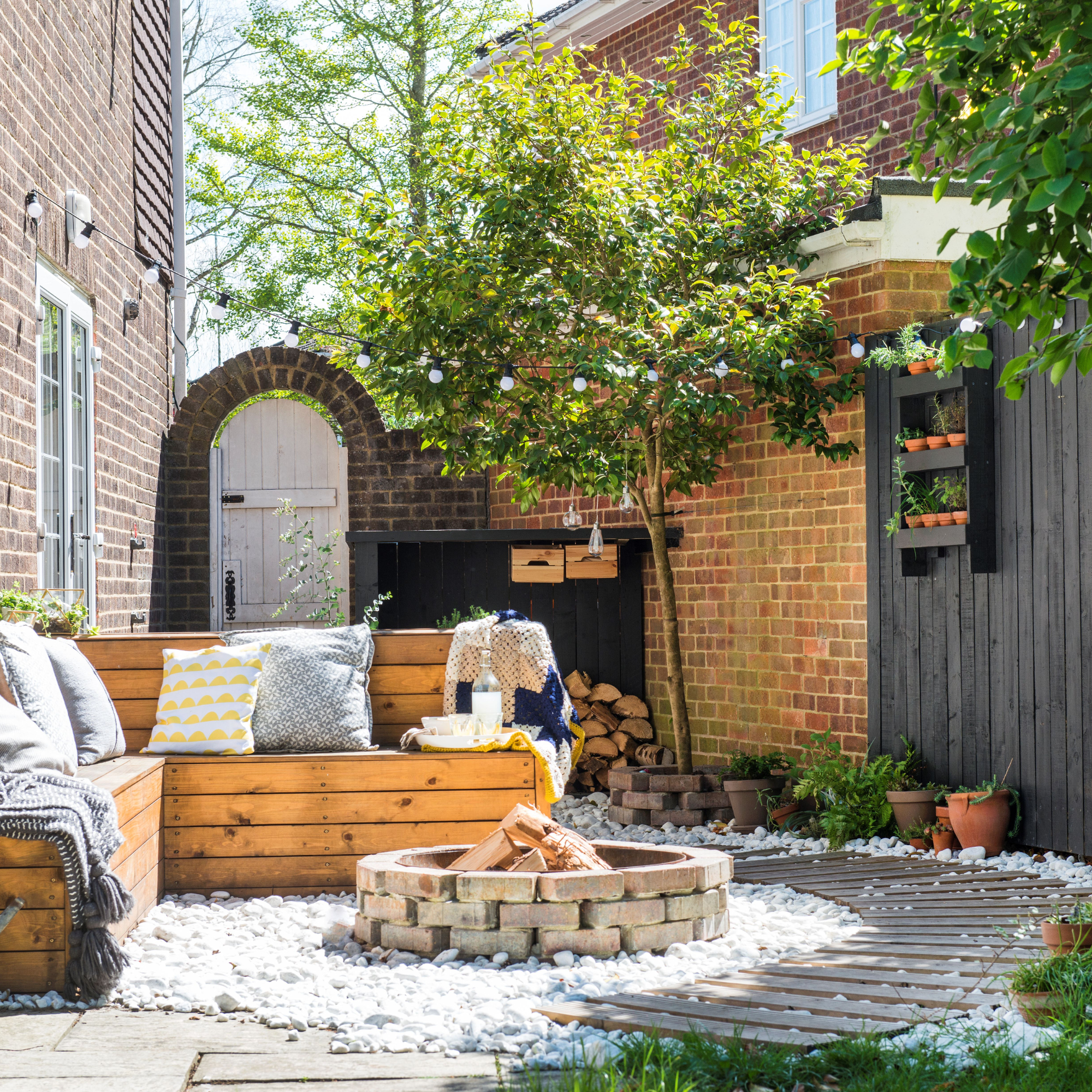
Summer is the season for dining alfresco, and gathering around the fire pit with a drink as night sets in. But once the flames die down, if you are wondering what to do with the leftover fire pit ash, the good news is it can be used in your garden to help it flourish.
The best fire pits and a wood-fired pizza oven are already a good garden investment for entertaining, but you're plants will also benefit. The leftover ash from a wood-fuelled fire bowl or chiminea has many benefits for garden soil.
'Bonfire ash or wood-burning stove ash can be added to a compost heap or dug directly into bare ground. It's a natural source of potassium and trace elements. As well as liming, it helps with acidic soils. Plants love it because it's packed with nutrients,' explains Jane Dobbs, Team Gardening Lead at Allans Gardeners.
Can you use fire pit ash in the garden?
The answer is yes, but you will need to keep an eye on the pH of your soil so you don't go overboard.
According to the Royal Horticultural Society (RHS), wood ash may contain varying levels of potassium (about 3 per cent) which is a plant nutrient associated with flowering and fruiting. Younger wood contains more potassium than older.
'Used sparingly, fire pit ashes can be beneficial to the garden as they contain potassium and can help raise soil pH if it is acidic,' agrees Holly Jones, Sales & Marketing Manager at Garden Street.
Here are some of the best ways to use fire pit wood ash to encourage your flower bed ideas and help your vegetable patch thrive.

1. Add wood ash to compost
If you want to know how to make compost, you'll be pleased to know that wood ash left over from garden fires is a valuable ingredient.
'Mix with Compost: Incorporate ashes into compost to help balance the pH of the compost and add nutrients,' says Holly Jones.
However, it's important to note that too much can be harmful. Add wood ash to the compost heap occasionally, since heavier use risks high levels of alkalinity, which could hurt plants.
Using a garden trowel or shovel transfer cooled wood ash to your compost heap and mix it in with the other materials. Blend it in so you are no longer able to identify it after mixing it into the compost.
The best times to add compost to the garden are spring and autumn.

2. Use wood ash as fertiliser
As well as using fire pit ash in the garden during composting, it's also beneficial during the growing season as a natural fertiliser.
'The ash from fire pits is rich in nutrients that plants need. Plants rely on potassium, calcium, and magnesium for growth,' says Jane Dobbs.
Sprinkle and scatter fresh, cooled ash around plants sparingly.
'The key is to use the ashes strategically and sparingly. I recommend applying just a thin, even layer - aim for about 10 lbs of ash per 1,000 sq ft of planter space,' says Victoria Cummins, a Senior Editor at PlantWhisperer.
'Avoid dumping the ashes right at the base of your plants, as this can damage them. Instead, sprinkle the ashes evenly across the surface of the potting soil.'
3. Use fire pit ash in the garden as pest control
As insecticides and chemical pest control methods can be toxic to your garden, it’s best to opt for more natural methods.
Like garlic spray, wood ash scattered around plants will act as a natural deterrent to stop slugs and snails from eating plants naturally.

4. Use fire pit ash to improve soil
If you are wondering why your hydrangeas aren't flowering or your plant leaves are looking lacklustre it may be because your soil pH is suffering.
Added to low-level pH soils, fire pit wood ash will balance out acidic matter.
'Ashes work best for balancing out acidic soils that are below a 7.0 pH. If your soil is already above a 7.0 pH and alkaline, the extra ashes likely won't help much,' says Victoria Cummins.
'Ash is alkaline, so it can help raise acidic soil's pH, making it more friendly to a wider range of plants. By adding ash to the soil, you can improve aeration and drainage," agrees Jane Dobbs.
Before you start sprinkling ash, test your soil's pH levels as different plants prefer different pH levels so you'll want to know the best plants to grow according to soil pH.
'Watch out if you're growing acid-loving plants like blueberries, azaleas, or rhododendrons in your containers. The alkaline ashes can actually do more harm than good for those types of plants. I suggest skipping the ashes in those pots altogether,' continues Victoria.
FAQs
Can I put charcoal ash on my garden?
'You can use some charcoal ash in your garden, but make sure it doesn't have any chemicals or additives,' advises Jane Dobbs. So make sure you check the packaging for any charcoal you've used on your BBQ or in a firepit.
Can I put fire pit ash on my garden that has been left out in the rain?
Wood ash left out in the rain will have lost most of it's nutritional benefit.
'You shouldn't leave wood ash out in the rain because potassium is soluble and can leach out,' says Jane Dobbs.
Soil leaching is when rainwater transports and removes nutrients as it runs through it. So if you want it to retain all the benefits put it someone undercover until you're ready to use it.
So next time you have a BBQ, pizza party or general gathering round the firepit remember to keep a hold of those ashes.







